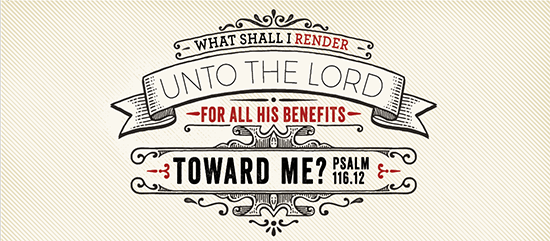
June-July 2017
The Power of
Empowerment
------------------
|






You Can Go Home Again, Part 1
By Bill and Brenda Evans
Home is where our cradle was, where we grew up, and, for most of us, where we eventually left and never went back again, except for brief visits. In some ways, Thomas Wolfe was right: you can’t go home again. But, in fact, most of us never fully leave home in the first place. We go away with some of its dirt under our fingernails or between our toes, and we cling to the values and lessons, good or bad, we acquired there.
We recently sat down with Melvin and Anne Worthington in the kitchen of Melvin’s homeplace
in Ayden, North Carolina, to talk about that topic of going home again.
Evans: Melvin, this is the house you were raised in. What’s it like to literally come home again?
Melvin: I wouldn’t be anywhere else. Of course, Anne and I live next door in a house we built, but I’m in this house every day. My office is there in the next room.
Evans: Were you born here?
Anne: He was supposed to be, right over there on that little kitchen table, but Mama had trouble, so they went to the hospital.
Melvin: I’m not sure that’s how it was.
Anne: Well, that’s what Mama said.
Melvin: Well, if Mama said it, then that’s how it was. (Laughter)
Anne: Milton [Melvin’s twin brother] was born first but was slow to come, so the doctor reached in and out he came. Then he said, “There’s another one,” and out came Melvin.
Melvin: You can tell I was an afterthought. Mama and Daddy just gave us one name apiece, but when we went to first grade, the school said they needed our middle names, too. So Milton took Wilber and I took Leroy because Daddy’s name was Wilber Leroy. That’s how we got middle names.
Evans: Melvin, you were in pastoral ministry in several states for 20 years and then in Nashville as executive secretary of the denomination for more than 23 years. You’re just finishing up 12 years on the Free Will Baptist Foundation Board, and you and your brother Milton have co-pastored Liberty FWB Church here in Ayden since 2003. When you came home, were you keeping a promise to your parents, or did you feel called back to the farm?
Melvin: Neither one. It was about stewardship, doing what you can with what you are and what you have. That’s what Daddy taught me. He was a farmer and told me one time that your legs go at 85. I’m 80 and haven’t lost my farming legs yet, although I do rent out most of my land. But I also haven’t lost the wonder of preaching.

Evans: We’ll get back to that “stewardship thing” in a little while, but first tell me about your call to preach.
Melvin: I was saved during a tent revival in 1954, called to preach in 1956, and ordained in 1957 while at Columbia Bible College. Four of us—R. J. Kennedy, Jerry Ballard, Milton, and me—had a quartet. I. J. Blackwelder, who had been our pastor here in Ayden during my teen years, had moved to Horse Branch Church in South Carolina. So our quartet did our Christian service with him. Sang off the back of a pickup truck, set up microphones in churchyards, white churches, black churches, a cappella, no piano, and gave our testimonies.
Sunday nights, we would talk to Brother Blackwelder for hours. He was a brilliant man who’d also been to Columbia, a master at outlining and preaching. One night he told us, “The Lord has called you boys to preach; you just don’t know it yet.” I told him no, the Lord hadn’t called me, and he said, “You enjoy testifying, don’t you?” And I did. He replied, “One day you’ll enjoy preaching.”
Anne: When Melvin told me, I just said, “I told you so.”
Melvin: They both were right. (Laughter)
Evans: So your preaching legs haven’t gone yet.
Anne: Or his mind, either. He still has a keen mind.
Melvin: And I don’t know that my preaching legs will ever go. But back to Columbia Bible College. It showed me something else: be something before you do something.
Evans: How does being and doing connect to your father and that thing of stewardship that you brought up a while back?
Melvin: Daddy was my greatest influence, a man of quietness and integrity. He taught me to tithe, go to church, and keep my word. His philosophy about money was give ten percent, save ten percent, and live on 80%. He also believed you didn’t have to have everything new.
My uncle came over one time and said he’d bought himself a $100,000 bean picker. Daddy told him he’d bought a $1,400 bean picker and picked $100,000 worth of beans. He dismissed new things with “That ain’t nothing.” He’d been to mechanic school and knew how to take old equipment and make it run. He had nine tractors, and not a one of them was new.
Anne: And he had that old trailer and his car, and here we’d go.
Melvin: He was the most contented man I ever knew. A farmer and never owned a truck. Like Anne said, pulled the trailer with his car. We learned to make do. If we needed a little cash, he’d say, “Sell a cow.”
Anne: Or a pig.
Melvin: He taught us to share. Milton and I had one bicycle. He rode it there. I rode it back. One gun, too. Another thing, Dad never let circumstances rule his life. I’ve watched his crops wash out of the field, and I’ve watched him have bumper crops. It didn’t matter. His expression didn’t change. He taught us the Lord was in control, and you just trusted Him.
Evans: Anne, you were born in Lexington, Kentucky, and brought up in Zurich Lake, Illinois, a small town where your father worked on a dairy farm, but you’ve adopted this place as home as well.
Anne: I have, and I love it. I get up early every morning, walk over here so we can feed and pet the animals together. We’ve got a llama, donkeys, cows, a horse that we board, a cat, and a neighborhood peacock. The horse doesn’t like me. Has this big head that could knock me down, so I watch out for him.
Melvin:They get a little rowdy sometimes, especially the llama. I had a young bull that would jump the fence, and I’d have to call in somebody to get him. Some things you let somebody else do. I’ve decided that next time he jumps, we’ll eat him.
Evans: You give a lot of credit to your parents for the person you are.
Melvin: Well, Daddy was a southern gentleman. That made the difference.
Anne: And he always said, “Think for yourself.”
Melvin: It didn’t matter what anybody else said. He’d sit right there at the table and gently tell you what he thought. His gentleness prepared me emotionally and psychologically for more than 23 years at the Executive Office. I never got really bent out of shape or showed myself. And Mama, too. She thought we children could do no wrong, so she gave us confidence. But she also was our disciplinarian. When I was in high school, I came in too late one night, and she took the keys away from me.
Anne: She was strict but very intelligent, too. She was voted Mother of the Year for the state of North Carolina.
Melvin: One time I came home from college with a mustache and a feather in my hat, and Daddy told me, “Your mother is on the ‘warpath.’ Cut that mustache.” And I did. When Columbia professors told me I had to be something before I could do something, I knew what it meant. I had learned it right here.
About the Writer: Bill and Brenda Evans live in Ashland, Kentucky. Bill is former director of the Free Will Baptist Foundation and Brenda is a retired English teacher. Visit www.fwbgifts.org for more information on planned giving that benefits your favorite ministry.
(Read You Can Go Home Again, Part 2, in the August-September issue.) |
|

